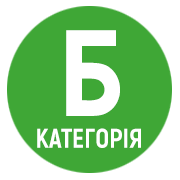STUDENTS’ SCIENTIFIC RESEARCH ACTIVITY IN FOREIGN LANGUAGE CLASSES AS AN ELEMENT OF PROFESSIONAL EDUCATION
DOI:
https://doi.org/10.32689/maup.philol.2022.2.2Keywords:
higher vocational education, scientific research activity, foreign language, scientific research competence, mini case studies, research projects, case technologies, scientifically-practical conferenceAbstract
Foreign language is a necessary and essential part of scientific research activity because it not only optimizes access to scientific information but also allows using the Internet resources, stimulates the development of international scientific contacts and provides more possibilities for the future specialist to increase his/her professional level. The aim of the article is to analyze the organization of students’ scientific-research activity, provide an overview of the meaning of scientific-research activity, distinguish didactic functions and elements of scientific-research activity. The realization of the assigned aim needs to accomplish the following tasks: 1) distinguish the development of scientific-research competence of students; 2) identify key varieties of scientificresearch activity of future specialists in the foreign language classes as an element of professional education; 3) highlight the criteria and indicators of students’ scientific-research competence development. Scientific novelty. The article substantiates the relevance of developing students’ scientific research competence in foreign language classes at a non-linguistic university and considers the role of scientific research activity in the system of foreign language professional education of students. Students’ scientific-research work in foreign language classes at higher professional educational institutions is a specific pedagogical tool for organizing and managing the students’ learning process. Participation of students in research activities contributes to their development as full-fledged individuals capable of continuous, high-quality self-development, independent thinking, ability to create their own scientific concepts, to plan and implement their professional activities. In conclusion, providing students with the opportunity to conduct their own scientific research in a foreign language, stimulating their interest in foreign authentic sources in their specialty will contribute to the education of students capable of participating in international conferences, internships abroad and, therefore, will lead to the development of highly qualified, mobile specialists who meet the needs of the time, therefore, the development of scientific research competence should become a binding task of a foreign language teacher.
References
Кузьмина Н. В. Понятие «педагогической системы» и критерии ее оценки. Методы системного педагогического исследования. М., 2002. С. 7–52.
Петрова С. Н. Научно-исследовательская деятельность студентов как фактор повышения качества подготовки специалистов. Молодой ученый. № 10. 2011. Т. 2. С. 173–175.
Савенков А. И. Путь в неизведанное: Развитие исследовательских способностей школьников. Москва : Генезис, 2005. 203 с.
Цатурова И. А. Шестикомпонентная методическая система обучения иностранному языку в неязыковом вузе. Материалы всероссийской научно-практической конференции. М., 2003. С. 334–342
J. Davison. Debates in English Teaching: Routledge, 2011. Р. 34–38.
Davidson, J. M., & Lyons, M. Undergraduates as Researchers – the Impact of Active Participation in Research and Conference Presentation on Psychology Undergraduate Identity and Career Aspirations. UK Journal of Perspectives in Applied Academic Practice. 2018. 6(1). Р. 39–46.
Hill, J., & Walkington, H. Developing Graduate Attributes through Participation in Undergraduate Research Conferences. Journal of Geography in Higher Education. 2016. 40(2). Р. 222–237.






